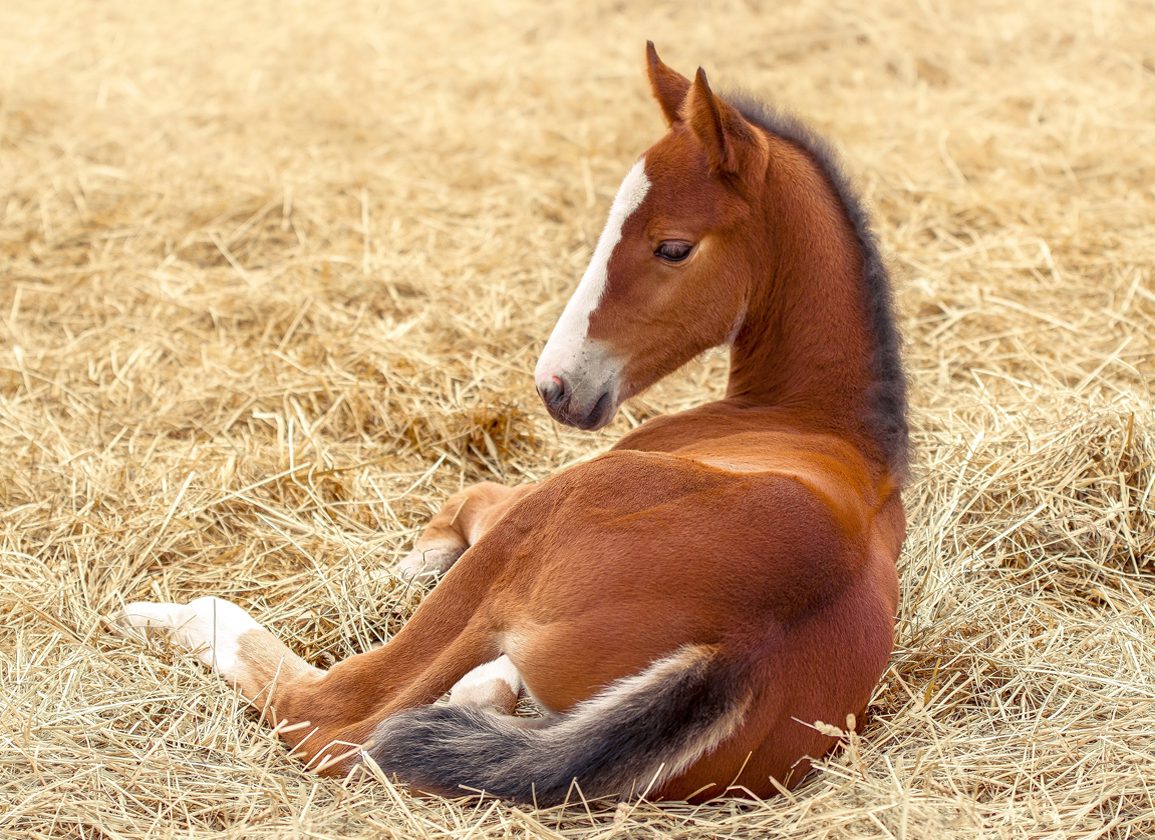New research from the Royal Veterinary College (RVC), in collaboration with Cornell University, has found that inbreeding is a contributing factor to mid- and late-term pregnancy loss (MLPL), but not early pregnancy loss (EPL) in thoroughbreds. This is the first study which explores the effect of genomic inbreeding levels on late-term pregnancy loss in the horse and will help inform mating choices to minimise the risk of miscarriages in thoroughbreds.
Inbreeding is a common practice in the livestock industry because individuals with desirable traits are highly prized for breeding. However, excessive inbreeding is known to increase the probability of uncovering homozygous recessive genotypes which have previously been associated with an increased risk of retained placenta and lower semen quality in horses.
Approximately five to 10 per cent of equine pregnancies end in early pregnancy loss and a further seven percent of pregnancies are lost between day 70 of gestation and 24 hours post parturition (MLPL). However, to date, there has been no definitive analysis to investigate the association between genomic inbreeding levels and pregnancy loss in horses.
Therefore, the research team, led by Dr Jessica Lawson, Alborada Trust research fellow at the RVC, and Professor de Mestre at the Baker Institute for Animal Health at Cornell University, together with previous PhD student at the RVC, Charlotte Shilton, analysed DNA samples from 189 individuals, including a control group. The study found that thoroughbred pregnancies lost in mid and late gestation (MLPL) had significantly higher inbreeding metrics than UK thoroughbred adults. However, pregnancies lost early in gestation (EPLs) showed no significant difference in inbreeding metrics compared to the adults.
Dr Jessica Lawson said, “This research provides critical evidence showing that mating highly related individuals does have a tangible effect on our breeding operations, as there is a real risk of a mare losing her pregnancy late in gestation and failing to produce a foal at all that season.
“The take home from our work should be to carefully consider breeding choices that involve mating of highly related individuals as, ultimately, this may increase the chance of the foal inheriting mutations which may not be compatible with life. We are already working on the next step, looking to identify these changes so more specific advice can be provided in the future”.
To view the article, please click here.
Not a subscriber? Click here to sign up for the daily PDF or alerts.






